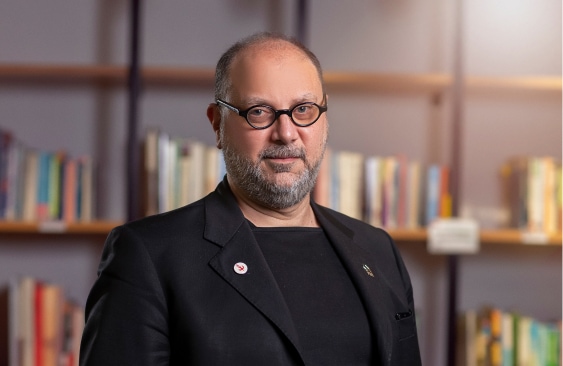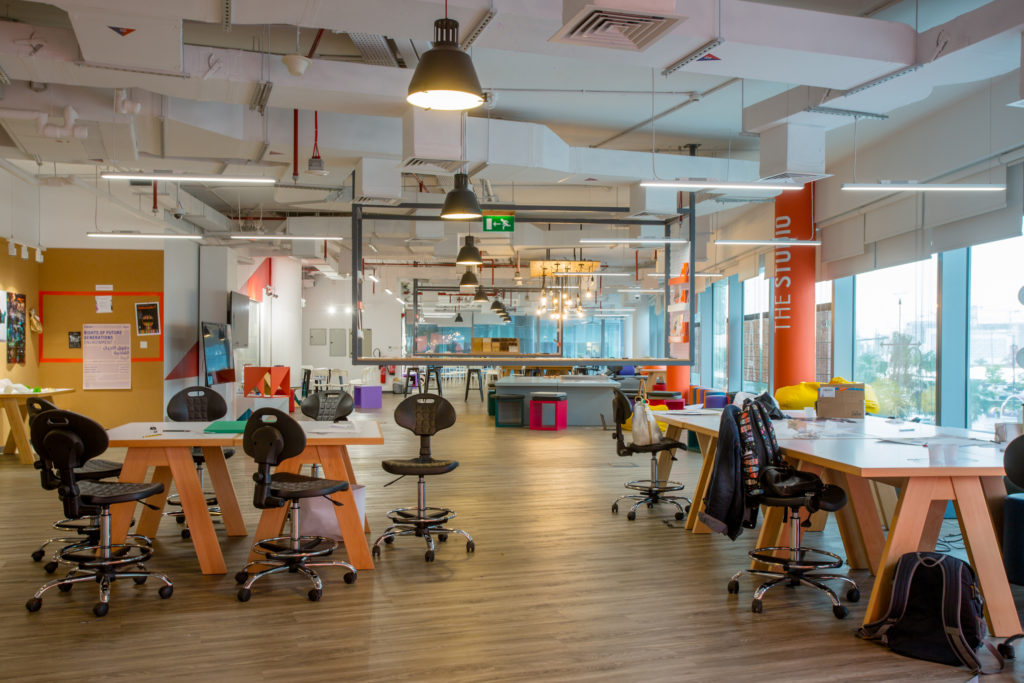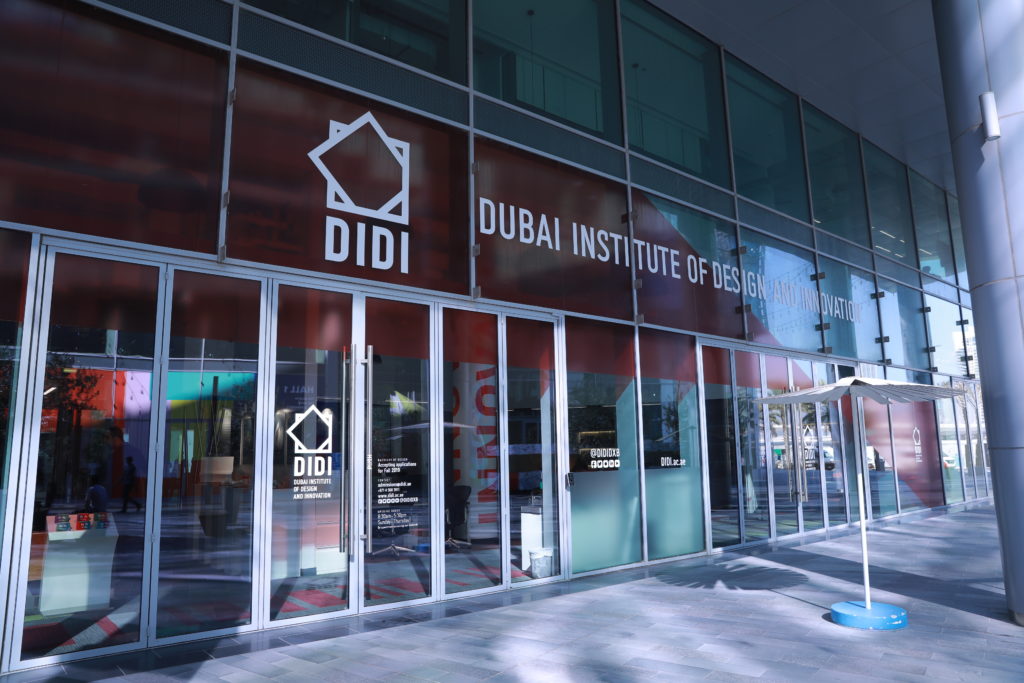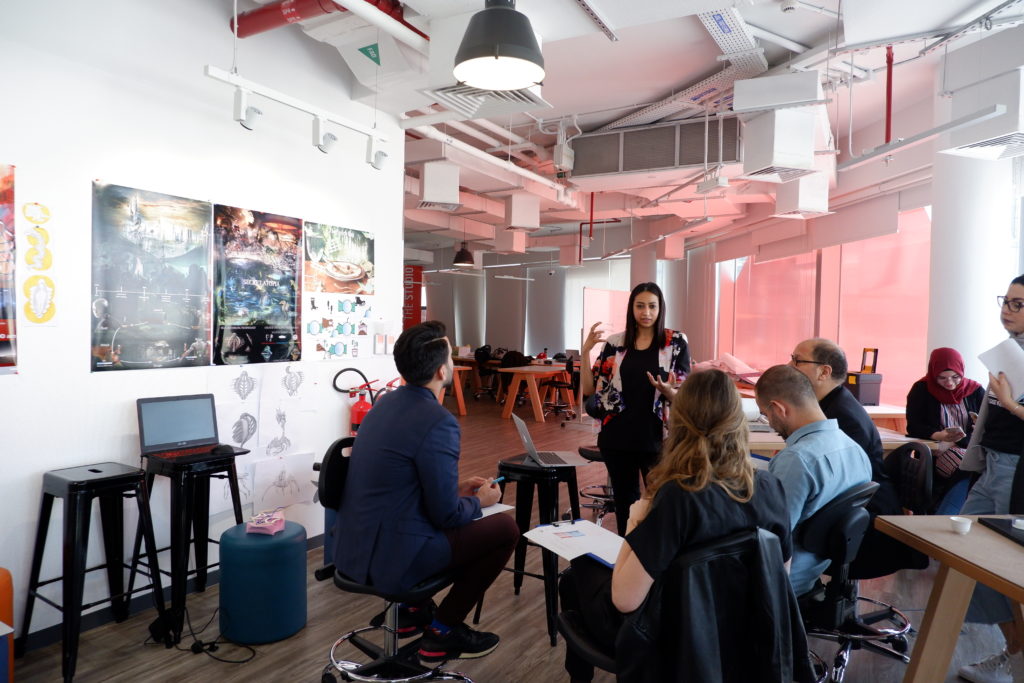Designers have the power to shape our world and envision our future. Design is all around us, in everything you see, feel and touch. While creativity might be the first thing one thinks of design, it’s a field with increasingly versatile applications that requires a multifaceted education. From our hand-held devices to the clothes on our backs,the car you use on your daily commute and any customer experience you might encounter, design thinking is today the blueprint for how we interact with the world around us.
The changing calendar signals a time for students to start reflecting on future goals as they prepare for university applications, summer internships and class schedules. Considering the future of work and evolving industries, design ranks quite high in jobs to keep an eye on. In conversation with Hani Asfour, Dean of the Dubai Institute of Design and Innovation (DIDI), we have filtered the 5 undeniable reasons why design is the career of the future and worth chasing.

- RELEVANCE: Learn the relevant skills of the future
Recently, The World Economic Forum identified complex problem solving, creativity and critical thinking as the top three skills needed to succeed in the Fourth Industrial Revolution. It is no surprise that these are the drivers of our curriculum, which we developed with MIT and Parsons School of Design. Design thinking adds empathy and prototyping to the mix, while also imparting life skills such as collaboration, tolerance, communication, listening and perseverance. We strongly believe that innovation happens across disciplines, and for this very reason, all our students combine two disciplines with their coursework and deliverables, in addition to integrating strategy and technology.
Our students also learn to weave various design, engineering and business principles to produce meaningful innovations as they create their own Bachelor of Design journey. We believe these skills are transferable to a wide range of professions, such as engineering, healthcare, communication, business—especially as digital life demands more heart and soul.
Just as complex problem solving, creativity, and critical thinking form the cornerstone of innovative thinking, online courses for Functional Skills subjects provide a robust framework for honing essential abilities necessary for thriving in today's digital age. Consider Functional Skills subjects with LearnNow, a comprehensive online learning platform designed to equip learners with practical skills in English, mathematics, and ICT. By integrating these subjects into their coursework, individuals can cultivate a versatile skill set that transcends disciplinary boundaries, preparing them to navigate diverse professional landscapes with confidence and proficiency.

- DEMAND: An industry in transition
Machine learning is making many jobs disappear. At the same time, many new jobs are emerging that require creative skills in mediating between humans and machines. Digital experiences, and in particular, front-end user interfaces, are calling for a plethora of new skills. We at DIDI have identified several future jobs, like Augmented Reality Product Designers or Chief Drone Experience Designers, whose roles are to build trust between users and the automatons that deliver their goods. Even the World Economic Forum’s 2030 round-up is equally telling as it spotlights future roles such as Smart Home Design Manager, Workplace Environment Architect and Tidewater Architect to monitor rising sea levels.
Our leadership is focusing efforts to grow the design sector, including the Dubai Design District (where we are located), demonstrating how creativity and design thinking are essential growth engines and investment drivers. In fact, Dubai’s Department of Economic Development has identified that in 2021, 71% of all Greenfield Foreign Direct Investments (FDI) were in Dubai's cultural and creative industries. The Design Management Institute’s Design Value Index has consistently shown that investing in design-centric companies, like Apple and Starbucks, for example, outperforms the S&P by at least 200%. Part of the reason is that design covers many fields, from business and engineering to fashion, where customer satisfaction and service differentiation depend on the quality of the customer experience—that is, its design.

- OPPORTUNITY: A glowing and growing horizon
We are in the Age of Design. A priority for improving our digital life is to humanize technology. Product designers, user-interface designers, interior designers and fashion designers are essential drivers of the creative economy and, at that, a small sample of the diverse design careers necessary for a better future. People with a background in design and computer-human interface knowledge are becoming key strategic differentiators in any business, from high-ranking Chief Design Officers, Art Directors and Experience Designers to Augmented Reality Designers, Product Safety Specialists and Chief Customer Experience Officers.
With the buzz around the Metaverse, NFTs and mixed realities, designers are already playing a major role in transforming businesses by creating meaningful environments and customer journeys in new channels and uncharted territories. It is designers—creative, critical thinkers—who will lead exciting new ventures into cyberspace and create innovative solutions to empathetically solve human and environmental challenges. At DIDI, we integrate design with technology and strategy from the get-go to future-proof our students, teaching them the scientific methods of design thinking to ease humanity into a desirable yet data-driven world.

- LEADERSHIP: Guiding the world into an ethical future
When Kia decided to lead by design, hiring Peter Schreyer from Audi, they increased their sales eight-fold in one year. On his return to Apple in 1997, Steve Jobs historically decreed that design should lead their product development, with Jony Ive at the helm. We all know how that simple choice skyrocketed Apple into the world’s most admired innovator.
Design is differentiation, simply put. It is clear that leading by design is the way forward, especially when the world needs engineers and businesspeople with a heart. Designers bring empathy to complex problem-solving. At a time when machine learning and other emerging technologies are defining the future, the world requires user-centric strategic thinkers. Design education provides a solid foundation for anyone who wishes to change the world in a meaningful and impactful way. Design makes solutions desirable and helps humanity build a sustainable future based on ethical practice and compassion.

- IMPACT: Design has global resonance
Human-centric design thinking is crucial to a better future world. Not only are much of our lives and businesses going online, but many of the amazing solutions for sustainability, mental health support and food security are rooted in technological innovations. Students at DIDI learn how to take real-life challenges and find impactful, working solutions.
One student designed a solar-powered robot that can sow seeds in the desert. Another one of our students created a headband that tracks and records the brainwaves and eye movement of a child with ADHD while he or she plays an immersive augmented reality game, helping guardians and healthcare providers monitor the child’s progress through play. A third student developed a handheld device that allows the visually impaired to scan a painting and listen to the sounds as the device maps certain colors to sounds.
These innovative projects demonstrate the incredible potential for technology to support those in need, especially in therapeutic settings. Having access to skilled professionals who understand the nuances of each individual’s challenges is vital in maximizing the impact of these inventions. For example, when addressing conditions like ADHD as an Introvert, therapists can provide tailored strategies that complement the child’s unique needs, fostering a more effective and comfortable healing process. With the right expert guidance, such technologies can be integrated seamlessly into therapeutic approaches, offering additional support where traditional methods may fall short.
Empathy in design allows us to humanize digitization and create positive impact. It promises life-changing experiences and brings a strong sense of purpose. Recently, seven of our students were invited to pitch their innovations at the Massachusetts Institute of Technology’s (MIT) design incubator. What’s more, at least fourteen of our students’ work has been featured in the Global Grad Show, GITEX, and featured in world-leading journals. Another two—and we’re the only regional university to do so—were displayed at the newly launched ‘Prototypes for Humanity’ at DIFC, held under the patronage of Her Highness Sheikha Latifa bint Mohammed bin Rashid Al Maktoum and support from Dubai Culture and ARM Holding. These achievements genuinely validate the centrality of design as an agent of change for building a better world.
Images courtesy of DIDI
For more information about DIDI, visit www.didi.ac.ae
Hani Asfour is the Dean of Dubai Institute of Design and Innovation (DIDI). As a practicing designer with over 20 years of experience, Asfour combines a mix of design expertise with entrepreneurship skills and academic depth, allowing him to combine practical and theoretical approaches in his teaching methods at DIDI. Asfour holds a Master of Architecture with Distinction from Harvard University, and a Bachelor of Science in Art and Design from the Massachusetts Institute of Technology (MIT).







